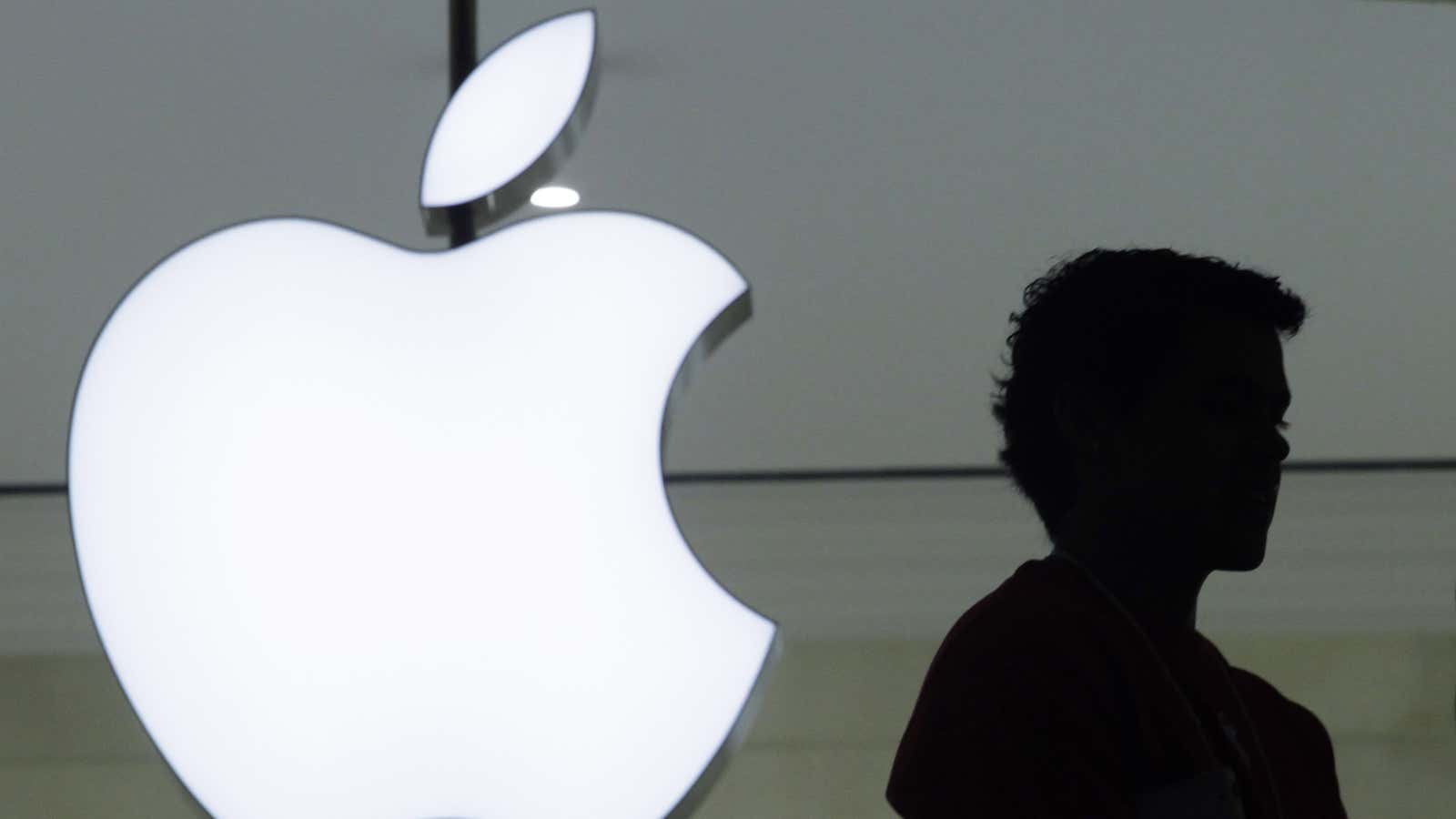It seems somewhat counterintuitive, but the public company with the largest stockpile of cash in the world—Apple, sitting on $145 billion—is borrowing billions of dollars in the financial markets today.
Why? While the company owns a lot of cash, a significant chunk of it is kept overseas, making it tough to bring back. (If Apple does, it’ll have to pay a lot of taxes on it.) And Apple will need a lot of cash over the next couple years because it’s promised to fork over roughly $100 billion—let’s just say that again…$100 billion!—to its shareholders through dividends and stock buybacks.
Of course, Apple isn’t exactly going hat in hand to beg for money. Investors are reportedly throwing dollars at the firm. The bankers managing the deal say the phones are constantly jingling with people looking to fork over their money for iBonds. Of course, the investment bankers—essentially salesman—managing any bond deal almost always say that, but in this case, it seems to be true.
Reuters reports that there’s $50 billion in orders from investors who want to get in on the investment. And while we won’t know exactly how much Apple is going to borrow until the deal prices—that’s when Apple gets its cash—the Journal says it’ll be more than $10 billion. And Reuters suggests the deal may be the biggest dollar-denominated bond offering ever recorded. A little birdie confirmed that to Bloomberg too, saying the deal will come in around $17 billion. (For the record, that is currently Swiss Pharma giant Roche’s $16.5 billion bond offering in February 2009, according to data provider Dealogic.)
And what will investors get for the billions of cash they’ll be handing over to Apple? Almost nothing. The range of interest rates Apple will reportedly be paying is very very low. Bloomberg reports:
The fixed-rate, three-year debt may pay 25 basis points more than similar-maturity Treasuries; the five-year notes may have a relative yield of 45 basis points; the 10-year securities may have a spread of 80 basis points and the 30-year bonds may pay 105, said the person, who asked not to be identified because terms aren’t set.
So to spell it out a bit more, the US five-year note is currently yielding about 0.67%. Apple expects to be able to borrow for five years at around 1.12%. That’s not only much less than the dodgier European countries like Italy (2.63%) and Spain (2.91%), it’s also lower than respectable sovereigns like Sweden (1.20%) and Australia (2.62%). That effectively suggests that Apple would be considered one of the safest places to stash your money on the planet, although not quite as safe as the safest government bond markets such as the US and Germany.
